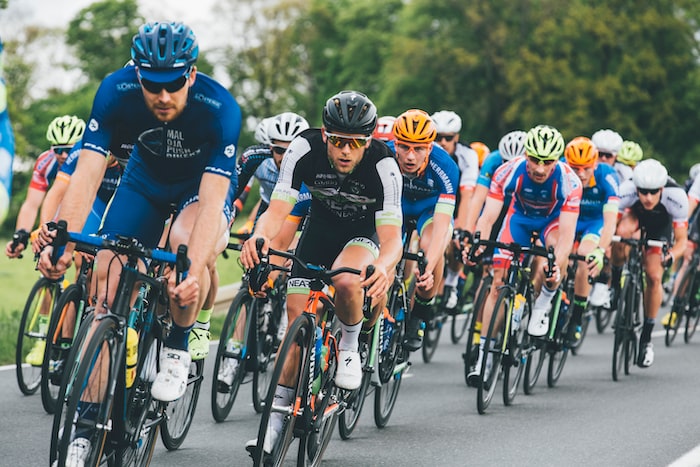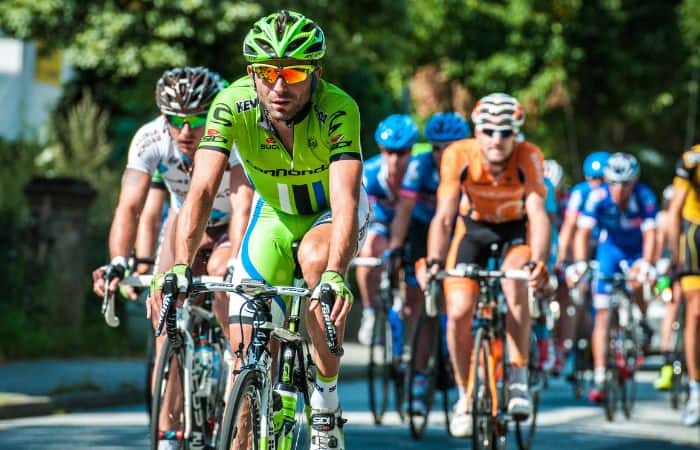Cycling has long been regarded as one of the most physically demanding sports in the world. Whether it is road cycling, track cycling, or mountain biking, the ability to pedal at high speeds for long periods of time requires a unique combination of physical and mental attributes. But the question remains: is cycling a talent, or is it a skill that can be developed through training and practice?

In this blog, we will explore the factors that contribute to success in cycling and examine the role of talent and skill in this sport. We will also examine the evidence for genetic factors in cycling ability, the importance of training, and the impact of environment on cycling success. By the end of this article, we hope to provide a more nuanced understanding of what it takes to excel in cycling and shed some light on the ongoing debate about whether cycling is a talent or a skill.
Understanding Talent and Skill
Talent and skill are often used interchangeably, but they are two distinct concepts. Talent refers to an innate ability or aptitude for a particular activity, while skill is the ability to perform a task or activity with expertise. Talent can be thought of as a head start, but it is not enough on its own to achieve success.
In cycling, talent may manifest in a number of ways. For example, an individual may have a high level of cardiovascular endurance, which allows them to pedal for extended periods of time without experiencing fatigue. Alternatively, they may have excellent balance and coordination, allowing them to navigate challenging terrain with ease. However, these innate abilities must be developed and honed through training in order to reach their full potential.
On the other hand, skill is the result of training and practice. In cycling, skill may include the ability to maintain a steady pace, handle a bike through tight corners, and strategically conserve energy during a race. These skills are learned over time and can be improved through deliberate practice.
The Role of Genetics
The influence of genetics on athletic ability has been a subject of study for decades. While there is no “athlete gene,” certain genetic factors have been found to be associated with improved athletic performance, including in cycling.

VO2 max
One such factor is VO2 max, which refers to the maximum amount of oxygen that an individual can utilize during exercise. Studies have found that genetic variations can influence an individual’s VO2 max and, therefore, their ability to perform at a high level in endurance sports like cycling.
Fun Outdoor Quiz
Muscle Fiber Composition
Another genetic factor that may contribute to cycling ability is muscle fiber composition. There are two types of muscle fibers: slow-twitch and fast-twitch. Slow-twitch fibers are better suited for endurance activities, while fast-twitch fibers are more suited for explosive, high-intensity activities. Individuals with a higher proportion of slow-twitch fibers may have an advantage in endurance sports like cycling.
It is important to note that genetics are only one piece of the puzzle when it comes to cycling ability. While certain genetic factors may provide an advantage, they are not the sole determining factor in success. The importance of training, nutrition, and other environmental factors cannot be overlooked.
The Importance of Training
Training is a crucial component of success in cycling. It is through training that individuals can develop the skills and abilities necessary to perform at a high level, regardless of their natural talent or genetic advantages. There are several types of training that can benefit cyclists:
Endurance Training
Endurance training involves activities that improve cardiovascular fitness and increase the body’s ability to use oxygen. This type of training is essential for cyclists, as it allows them to pedal for extended periods of time without experiencing fatigue.
Strength Training
Strength training involves exercises that build muscle mass and improve muscular strength. While cycling is primarily an endurance sport, building strength in the legs and core can help cyclists maintain good form and power output over long distances.
Interval Training
Interval training involves alternating periods of high-intensity exercise with periods of rest or low-intensity exercise. This type of training is effective for improving speed and power output, and can be particularly useful for cyclists who participate in races or sprints.
In addition to these specific types of training, proper nutrition and recovery are also essential for success in cycling. Adequate rest, hydration, and nutrient intake are necessary for the body to recover and rebuild after intense training sessions.
It is important to note that training should be tailored to an individual’s specific goals and abilities. A training plan that works for one cyclist may not be effective for another. Working with a coach or trainer can help cyclists develop a personalized training plan that targets specific areas of improvement and maximizes their potential.
The Impact of Environment
While genetics and training are important factors in cycling ability, the environment in which an individual trains and competes can also have a significant impact. Environmental factors such as altitude, temperature, and terrain can all affect a cyclist’s performance.
Altitude
Altitude is a particularly important environmental factor for cyclists. At high altitudes, the air pressure is lower and the oxygen content of the air is reduced. This can make it more difficult for cyclists to breathe and can lead to fatigue and decreased performance. However, training at high altitudes can also lead to adaptations in the body that improve endurance and oxygen utilization, providing an advantage in races held at lower altitudes.
Temperature
Temperature is another important environmental factor that can affect cycling performance. In hot temperatures, the body must work harder to regulate its internal temperature, leading to increased heart rate and decreased performance. On the other hand, colder temperatures can lead to decreased flexibility and increased risk of injury. Proper clothing and hydration are important for maintaining optimal performance in a range of temperatures.

Terrain
Terrain is also an important environmental factor for cyclists. Steep hills or uneven terrain can challenge even the most skilled and experienced cyclists, while flat terrain may favor those with high speed and power output. Familiarity with the terrain can also be an advantage, as it allows cyclists to develop a strategy and pacing plan that maximizes their strengths and minimizes their weaknesses.
In addition to these environmental factors, the culture and support system surrounding cycling can also impact an individual’s success. Access to quality coaching, equipment, and training facilities can all contribute to a cyclist’s ability to perform at a high level.
The Intersection of Talent and Skill in Cycling
While genetics and environment can contribute to cycling ability, the intersection of talent and skill is where true success lies. Talent refers to an innate ability or potential, while skill refers to the ability to perform a task with proficiency and efficiency. In cycling, talent and skill are both important, but they must be developed and honed through consistent training and practice.
Talent can manifest in different ways in cycling. Some individuals may have a natural ability to generate power or maintain high speeds, while others may have a talent for endurance and the ability to maintain a consistent pace over long distances. However, talent alone is not enough to succeed in cycling. It must be combined with skill development to maximize potential.
Skill development in cycling involves developing the technical and tactical abilities necessary to perform at a high level. Technical skills such as cornering, descending, and pedaling efficiency are essential for success, as they allow cyclists to maintain speed and efficiency throughout a race or ride. Tactical skills, such as drafting and pacing, are also important, as they allow cyclists to conserve energy and optimize their performance.
The intersection of talent and skill in cycling can be seen in the top professional cyclists. While these individuals may have a natural talent for cycling, they have also spent years honing their skills through consistent training and practice. They understand how to optimize their performance in a variety of environments, and they have developed the mental toughness necessary to push through fatigue and adversity.

Conclusion
In conclusion, the question of whether cycling is a talent or a skill is not a straightforward one. While genetics can contribute to cycling ability, training, environment, and the development of technical and tactical skills are all critical factors in achieving success as a cyclist.
Natural talent can provide a head start, but it must be nurtured and developed through consistent training and practice. Furthermore, the impact of environment on cycling performance cannot be overlooked, with factors such as altitude, temperature, and terrain all playing a role.
Ultimately, the intersection of talent and skill is where true success lies in cycling. The top professional cyclists have natural talent, but they have also developed the technical and tactical abilities necessary to perform at a high level. By putting in the work to develop their skills, they have achieved their goals and reached their full potential.







